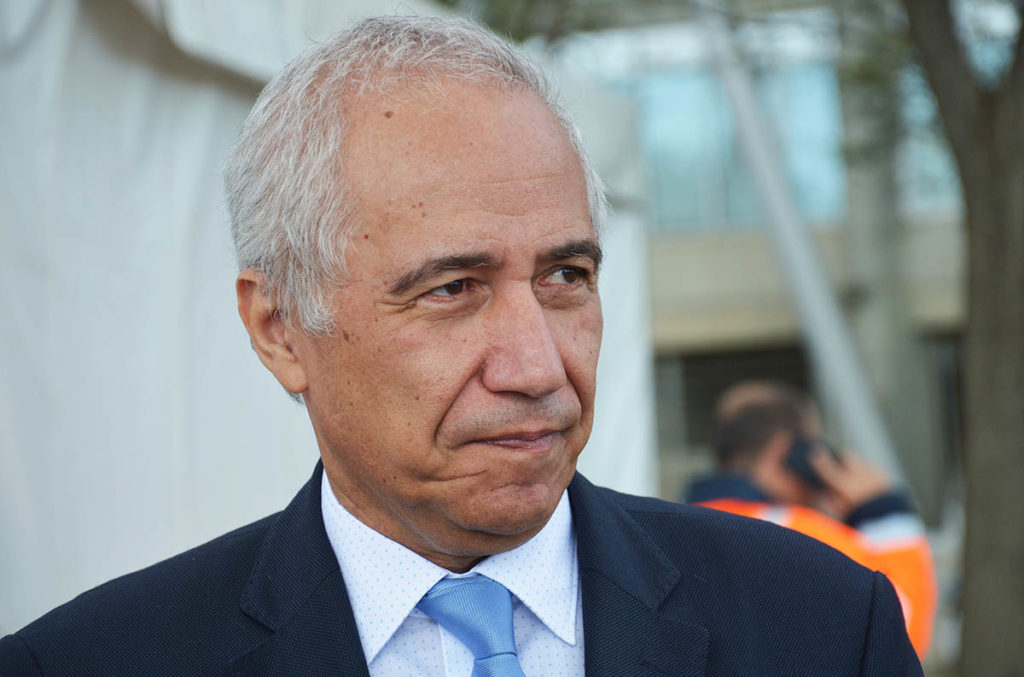Hospitalizations due to Covid-19 in the Algarve “will still go up something” in the coming days, he admitted to the Sul Informação Paulo Morgado, president of the Regional Health Administration, but the epidemiological situation is not too worrying, since “according to the projections we have, this will not jeopardize the functioning of our hospital units”.
In recent weeks, as our newspaper reported, there has been a decrease in the number of people hospitalized with Covid-19 both in the ward and in the Intensive Care Unit.
However, warned Paulo Morgado, “it is best not to fly in an arc, because they can still go up and I believe they will go up something. Let's take it easy."
«The decrease in hospitalizations has to do with the situation that we were already witnessing with the decrease in the Delta variant. That is, we had already reached the peak of Delta in the first or second week of December. At that time, we were already starting to go down, so hospitalizations also dropped», he explained.
This is because, contrary to what happened with the Delta variant, Ómicron arrived later in the Algarve than in other regions of the country.
“Right now, in epidemiological terms, we have to distinguish two periods, within the so-called fifth wave. There was a first period in which we had the Delta variant in the region, especially the AY4.2 lineage, which was predominant in the region until the last week of December», framed the president of ARS Algarve.
Until then, «most of the cases that we had sequenced were with this variant, but since then, the number of cases with Ómicron has increased exponentially».
This is what led to “from the last week of the year and the first week of January, we had a large increase in the number of new cases”.
In the same way that the number of admissions rose in other regions of the country, due to the highly contagious Ómicron, «it is natural and expected that this will also happen in the Algarve in the coming days».
“But I am not very worried, because, according to the projections we have, this will not jeopardize the functioning of our hospital units”, he concluded.
What is certain is that the country today has an “epidemiological situation that is very different from last winter”.
«A year ago, in December, January and until mid-February, we had an increase in cases and here in the region we reached a peak of almost 400 cases per day, in January».
Last week, there were several consecutive days with 1200 new cases in the Algarve, a bar that had already been exceeded the previous week. That is, three times more cases per day than in January 2021.
«During this period, we had more than 200 people in the ward in the region and, in more than one day, we reached 41 people hospitalized in intensive care. There was never a situation of rupture, but there was, in fact, great pressure on hospitals, from the point of view of admission to the ward and intensive care», he recalled.
“Today, from the point of view of internment, the situation is radically different. Today, we have about 60 inpatient beds in the ward occupied with Covid patients and a dozen people in intensive care”, he said.
«It is very natural that these numbers could increase, albeit moderately, because the experience and knowledge we have in relation to this Ómicron variant is that it causes less severe disease. Therefore, the risk of having a more serious disease is lower», believes Paulo Morgado.
Even because the current reality is totally different. «It is because we, at the moment, have 88% of the population vaccinated in the Algarve and, during the wave of last winter, we had started the vaccination process at the beginning of January».
«From an epidemiological point of view, the situation is totally different and so are the consequences, especially because we have almost the entire population vaccinated and a variant that is different, from the point of view of the impact it has on hospitalizations, whether in the ward or in intensive care", he concluded.




















Comments